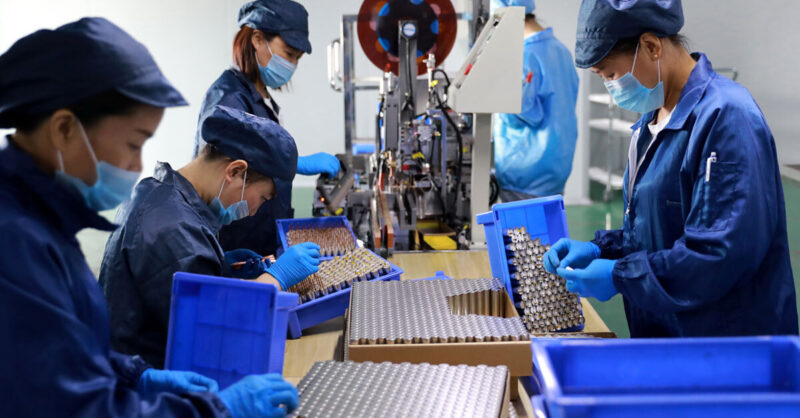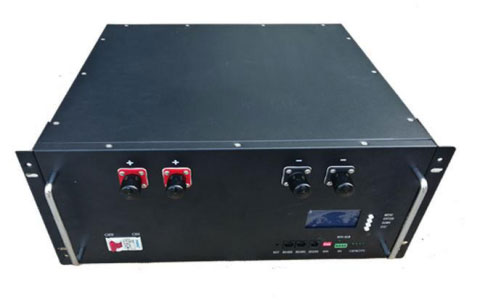Revolutionizing Power Distribution: The Impact of Smart Grids and Lithium Battery Technology
Introduction
Power distribution systems have been an integral part of modern society, ensuring electricity is delivered reliably and efficiently to homes, businesses, and industries. However, with the increasing demand for electricity and the need to integrate renewable energy sources, traditional power distribution systems are facing significant challenges. To address these challenges, smart grids and lithium battery technology have emerged as revolutionary solutions that have the potential to transform power distribution systems worldwide. This article explores the impact of smart grids and lithium battery technology on power distribution and discusses their benefits and challenges.
Smart Grids: Transforming Power Distribution
A smart grid is an advanced electrical grid system that incorporates digital communication technology and automation to enhance the efficiency, reliability, and sustainability of power distribution. Unlike traditional grids, smart grids enable bidirectional communication between energy producers, consumers, and grid operators in real-time. This communication allows for the integration of various energy sources, including renewable energy, and facilitates the optimization of power flows throughout the system.
One of the key advantages of smart grids is their ability to enhance energy efficiency. By utilizing advanced sensors and meters, smart grids provide real-time data on energy consumption, allowing consumers to monitor and manage their energy usage more effectively. Additionally, smart grids enable demand response programs, where consumers can adjust their energy consumption during peak demand periods, reducing the strain on the grid and preventing blackouts. This dynamic approach to energy management promotes energy conservation and reduces overall electricity costs.
Furthermore, smart grids facilitate the integration of renewable energy sources into the power distribution system. Renewable energy, such as solar and wind power, is often intermittent and decentralized. Smart grids can intelligently manage the fluctuations in renewable energy generation by efficiently balancing supply and demand, ensuring a stable and reliable power supply. This integration not only reduces greenhouse gas emissions but also decreases dependence on fossil fuels, leading to a more sustainable energy future.
Lithium Battery Technology: Enabling Energy Storage
While smart grids optimize power distribution, energy storage is crucial to address the intermittency of renewable energy sources. Lithium battery technology has emerged as a breakthrough solution for energy storage, revolutionizing power distribution systems.
Lithium batteries offer several advantages over traditional energy storage technologies. They have a high energy density, allowing for compact and lightweight designs, making them suitable for various applications, including residential, commercial, and utility-scale energy storage. Additionally, lithium batteries have a longer lifespan and higher efficiency compared to other battery technologies, ensuring reliable and cost-effective energy storage solutions.
With the integration of lithium battery technology into power distribution systems, excess energy generated from renewable sources can be stored and utilized during periods of high demand or when renewable energy generation is low. This eliminates the need for additional fossil fuel-based power plants to meet peak demand, reducing carbon emissions and promoting a greener energy mix.
Challenges and Future Outlook
While smart grids and lithium battery technology offer immense benefits, their implementation faces several challenges. The integration of smart grids requires significant investment in infrastructure, including advanced meters, sensors, and communication networks. Moreover, ensuring data security and privacy is crucial to protect the integrity of the grid and consumer information.
Similarly, the widespread adoption of lithium battery technology requires advancements in battery chemistry, manufacturing processes, and cost reduction. Additionally, the disposal and recycling of lithium batteries pose environmental concerns, necessitating the development of sustainable and efficient recycling methods.
Despite these challenges, the future of power distribution looks promising with the integration of smart grids and lithium battery technology. Governments, utility companies, and technology providers are increasingly investing in these technologies to enhance the efficiency, reliability, and sustainability of power distribution systems. As advancements continue, smart grids and lithium battery technology will play a pivotal role in revolutionizing power distribution, enabling a greener and more resilient energy future.

Conclusion
The power distribution landscape is undergoing a transformative change with the emergence of smart grids and lithium battery technology. Smart grids optimize energy efficiency, integrate renewable energy sources, and enable demand response programs, while lithium battery technology facilitates energy storage and addresses the intermittency of renewable energy. Although challenges exist, the widespread implementation of these technologies promises a greener, more reliable, and sustainable power distribution system. As we embrace these advancements, the revolutionization of power distribution will pave the way for a brighter and more sustainable future.
-
 Keeping your car's starter battery in healthy condition is vital for its performance and longevity. It is important to regularly check the battery's date to ensure that it does not expire and leave you stranded on the road. In this article, we will guide you on how to check the date of your car's starter battery and what to do...Read more
Keeping your car's starter battery in healthy condition is vital for its performance and longevity. It is important to regularly check the battery's date to ensure that it does not expire and leave you stranded on the road. In this article, we will guide you on how to check the date of your car's starter battery and what to do...Read more -
 Introduction In recent years, the demand for efficient and reliable energy storage solutions has grown exponentially. As the world continues to shift towards renewable energy sources, the need for effective energy storage becomes increasingly crucial. Industrial power products batteries have emerged as a promising solution, with their ability to store large amounts of energy and provide a sustainable power...Read more
Introduction In recent years, the demand for efficient and reliable energy storage solutions has grown exponentially. As the world continues to shift towards renewable energy sources, the need for effective energy storage becomes increasingly crucial. Industrial power products batteries have emerged as a promising solution, with their ability to store large amounts of energy and provide a sustainable power...Read more -
 In recent years, there has been a significant increase in the use of mobile robots across various industries and sectors. These robots are designed to perform tasks autonomously, without the need for human intervention. One crucial component that powers these robots and enables them to operate for extended periods is the lithium-ion battery. Lithium-ion batteries have revolutionized the field...Read more
In recent years, there has been a significant increase in the use of mobile robots across various industries and sectors. These robots are designed to perform tasks autonomously, without the need for human intervention. One crucial component that powers these robots and enables them to operate for extended periods is the lithium-ion battery. Lithium-ion batteries have revolutionized the field...Read more -
 LiFePO4 batteries have been gaining popularity in recent years due to their many advantages over traditional lead-acid batteries. In this article, we will discuss some of the main advantages of using a LiFePO4 battery.1. Longer lifespanOne of the biggest advantages of LiFePO4 batteries is their longer lifespan. These batteries can last up to 10 times longer than lead-acid batteries, which...Read more
LiFePO4 batteries have been gaining popularity in recent years due to their many advantages over traditional lead-acid batteries. In this article, we will discuss some of the main advantages of using a LiFePO4 battery.1. Longer lifespanOne of the biggest advantages of LiFePO4 batteries is their longer lifespan. These batteries can last up to 10 times longer than lead-acid batteries, which...Read more -
 Electric bikes and scooters have gained popularity as an eco-friendly and affordable mode of transportation. They offer a convenient way to navigate through traffic and reduce carbon emissions. However, the key component that makes these vehicles run efficiently is the battery. In this article, we will explore the importance of a high-quality ebike/scooter battery and how it powers your ride...Read more
Electric bikes and scooters have gained popularity as an eco-friendly and affordable mode of transportation. They offer a convenient way to navigate through traffic and reduce carbon emissions. However, the key component that makes these vehicles run efficiently is the battery. In this article, we will explore the importance of a high-quality ebike/scooter battery and how it powers your ride...Read more -
 Introduction Batteries are an essential part of any vehicle. They provide the power needed for the engine to start, as well as for various electrical components in the car. Over the years, advancements in technology have led to the development of different types of batteries. One such type is the lithium starter battery, which has several advantages over traditional...Read more
Introduction Batteries are an essential part of any vehicle. They provide the power needed for the engine to start, as well as for various electrical components in the car. Over the years, advancements in technology have led to the development of different types of batteries. One such type is the lithium starter battery, which has several advantages over traditional...Read more -
 When it comes to finding the right U series supplier for your industrial needs, there are several factors to consider. The U series refers to a range of bearings manufactured by various companies that are commonly used in industrial applications, including heavy machinery, automotive, and aerospace industries. Here are some key factors to consider when selecting a U series supplier...Read more
When it comes to finding the right U series supplier for your industrial needs, there are several factors to consider. The U series refers to a range of bearings manufactured by various companies that are commonly used in industrial applications, including heavy machinery, automotive, and aerospace industries. Here are some key factors to consider when selecting a U series supplier...Read more

